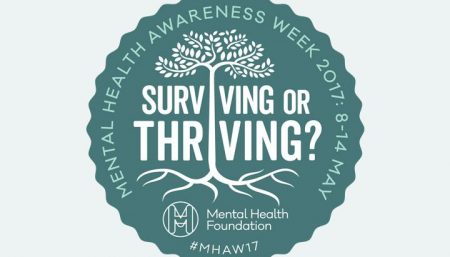
Physical inactivity and bad nutrition are two major public health problems, which would most possibly lead to the development of a variety of diseases. Obesity, cardiovascular disease, diabetes, hypertension, high cholesterol and depression are just a few of these. World Health Day 2017 raises awareness to the public about depression. Most people are not aware that there is a link between nutrition, exercise and depression. Below you will find some easy nutrition and exercise tips which will help you improve your diet, psychology and live a healthier lifestyle.
1. Check your Vitamin D3, B12 and folate levels.
Skipping meals could lead to vitamin and nutrient deficiencies and be followed by depression. It’s very important to check your vitamin D3, B12 and folate levels every time you have a blood test. Studies have shown that individuals with seasonal affective disorder and symptoms of depression become better when they increase their D3, B12 and folate levels (1, 2). It seems that supplementation of high vitamin D3 doses will possibly benefit overweight and obese individuals to reduce their depression symptoms (2). There seems to be a link between nutrition deficiencies and mental disorders. Sun exposure can help you increase vitamin D3 levels while eggs, beef, seafood, green leafy vegetables, oranges, liver, peas and beans are foods high in vitamin B12 and folate (3).

2. Add fatty fish and nuts to your diet.
The brain needs fats to function well and improve concentration (1). Top up your body with good fats by adding to your diet nuts – almonds, walnuts, cashews – nut butters, oily fish, avocados, extra virgin olive oil and seeds like flaxseeds. Studies have shown that by consuming diets which contain omega 3 fatty acids, you decrease the possibility of developing depression (1). Omega 3 fatty acids not only help with depression, they have also been found to help reduce bad cholesterol LDL and increase good cholesterol HDL, help with cardiovascular diseases, arthritis, balance blood pressure, skin conditions and immunity (3, 4).
3. Exercise on a daily basis.
Physical activity itself has positive effects on the brain and consequently on mental health as it postpones any decrease in the cognition and increases wellbeing (5). World Health Organization recommends at least 5 times a week of 30 min moderate intensity aerobic exercise for every healthy individual between 18 – 64 years old. Exercise actually will help in decreasing depression symptoms and in balancing a positive mood when you do it frequent enough (6).
4. Balance your serotonin levels.
By following diets that are low in carbohydrates, you will manage to control the chemicals in the brain – serotonin and tryptophan – which are being triggered by diets rich in carbohydrates and seem to boost depression levels (1). Controlling and checking your body weight often, will also help you follow a healthier way of life and balance the changes on your body as well as avoid anorexia or bulimia which could be initial stages of depression. Add to your diet vegetables and fruits and use brown pasta, rice and bread which will make you feel full for longer and help you keep a healthy weight.

5. Reduce sugar consumption.
Consuming foods that contain high content of sugar seem to be related to increased depression levels (7). Sugar will give a quick burst to the blood sugar levels and will make you feel full of energy for a moment, but it will also make you feel lethargic and out of energy very quickly after eating this type of food. Try to reduce processed food, ready-made meals, concentrated juices, ready-made sauces as well as chocolate and sweets and consume foods that are higher in protein content and low GI. These types of food will make you feel satiated and will help you stop craving the sugary treats.
Seize the opportunity of this global health awareness day to set up some goals that would help you boost your immunity and improve your physical activity levels. Remember it’s never too late to start a healthier lifestyle, start being more active and start being happy!
References
- Sathyanarayana Rao, T. S., Asha, M. R., Ramesh, B. N., and Jagannatha Rao, K. S. (2008). Understanding nutrition, depression and mental illnesses. Indian J Phychiatry, 50 (2), 77 – 82.
- Jorde, R., Sneve, M., Fifenshau, Y., Svartberg, J. and Waterloo, K., (2008). Effects of vitamin D supplementation on symptoms of depression in overweight and obese subjects: randomized double blind trial. Journal of Internal Medicine, 264 (6), 599 – 609.
- Hark, L. and Deen, D. (2005). Nutrition for life. The definitive guide to eating well for good health. United Kingdom: Dorling Kindersley.
- Covington, M. B. (2004). Omega-3 fatty acids. American Family Physicians, 70 (1), 133 – 140.
- Blair, S. N., (2009). Physical Inactivity: the biggest public health problem of the 21st British Journal of Sports Medicine, 43 (1).
- Dimeo, F., Bauer, M., Varahram, I., Proest, G., Halter, U., (2001). Benefits from aerobic exercise in patients with major depression: a pilot study. British Journal of Sports Medicine, 35 (2), 114 -117.
- Westover, A. N., and Marangwell, L. B., (2002). Research Article: A Cross-National Relationship between Sugar Consumption and Major Depression? Depression and Anxiety, 16, 118 – 120.
Disclaimer
The Content is not intended to be a substitute for professional medical advice, diagnosis, or treatment. Always seek the advice of your physician or other qualified health provider with any questions you may have regarding a medical condition.

